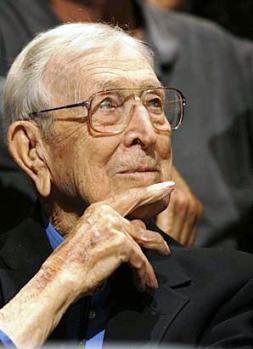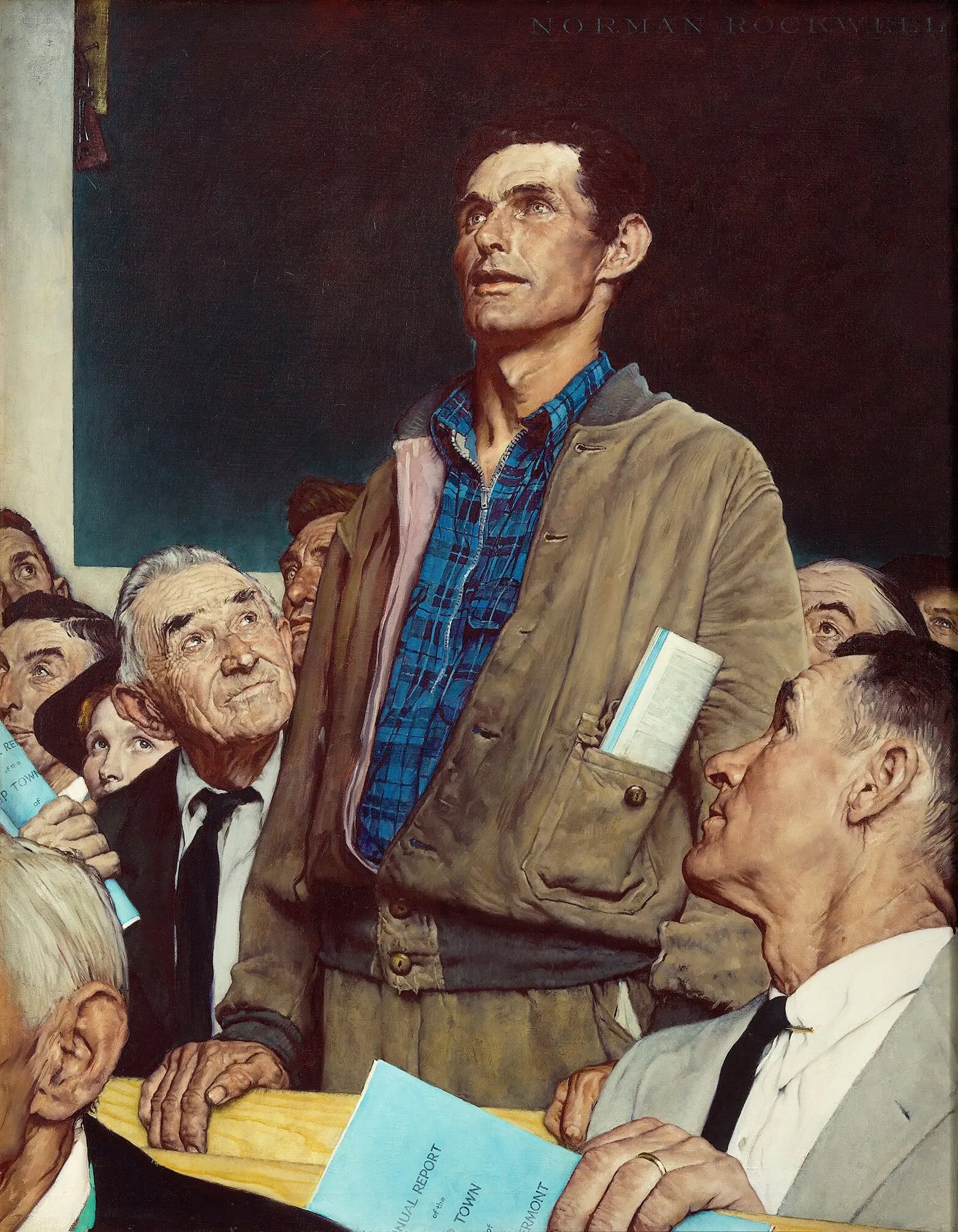Basketball Coach John Wooden died last week.
While Wooden was remembered for his spectacular coaching career at UCLA, what I remember most is his letter to me in 1999 for my book, What Do You Stand For? I had asked Wooden and others to respond to this questionnaire: What do you stand for; what principles have you lived by? Describe a ‘moment of principle’ in which your convictions were tested or a story in which you were inspired by another.

In honoring John Wooden, I’m reprinting his entry.
Some people think that the only way you can teach college athletes and build a winning basketball season is to intimidate, bully and demean. It’s a good thing John Wooden and his students never paid much attention to that kind of “conventional” wisdom. Always there to support, encourage, and congratulate, Coach Wooden directed his UCLA Basketball teams to 10 NCAA titles – including 7 in a row – and achieved an amazing lifetime wining percentage of 81.5%.
In 1934 Wooden coined his own definition for success – “Peace of mind which is a direct result of self-satisfaction in knowing you did your best to become the best of which you are capable of becoming.” Through word and deed, John Wooden taught his student players how to be successful in life.
“Although I am imperfect and have failed at times, I have tried to live up to the creed that my father gave to me when I graduated from a small three-room country grade school in 1924. He gave me a small card with a verse on one side and the seven-point creed on the other and simply said, ‘Son, try to live up to these.’
The Verse
Four things a man must learn to do
If he would make his life more true:
To think without confusion – clearly,
To love his fellow man – sincerely,
To act from honest motives – purely,
To trust in God and Heaven – securely.
The Creed
1. Be true to yourself.
2. Make each day your masterpiece.
3. Help others.
4. Drink deeply from good books.
5. Make friendship a fine art.
6. Build a shelter against a rainy day.
7. Pray for guidance and give thanks for your blessings
every day.
“In April of 1948, I had decided to accept a position at the University of Minnesota, providing they could work out a problem with their Board of Regents. They were to call me by five o’clock one afternoon, as UCLA, my second choice, was to call me by 6 p.m. for an answer. The Minnesota representatives failed to call, and when the UCLA people called on time, I accepted their position.
“The Minnesota people called an hour later and said that everything was all set. I told them that, since they had not called on time and UCLA had, I accepted the position at UCLA and could not go back on my word. The Minnesota representative informed me that an unexpected and unseasonable snowstorm had delayed their getting to a telephone.
“As Abraham Lincoln, my favorite American, said, ‘Things work out best for those who make the best of the way things work out.’”
Perhaps a fitting epitaph for a man who was such a shining example to his players would be these words from Lincoln –
“I am not bound to win, but I am bound to be true. I am not bound to succeed, but I am bound to live by the light that I have. I must stand with anybody that stands right, and stand with him while he is right, and part with him when he goes wrong.”
Comments










